Key takeaways
- Legal advocacy requires a balance of strategic communication and emotional intelligence to represent clients effectively.
- Mentorship in law is crucial for bridging the gap between theory and practice, providing insights that textbooks cannot offer.
- Building mentor relationships is about genuine communication, trust, and mutual respect, enhancing learning and personal growth.
- Applying mentorship lessons in legal practice fosters confidence and clarity, making advocacy more effective and client-centered.
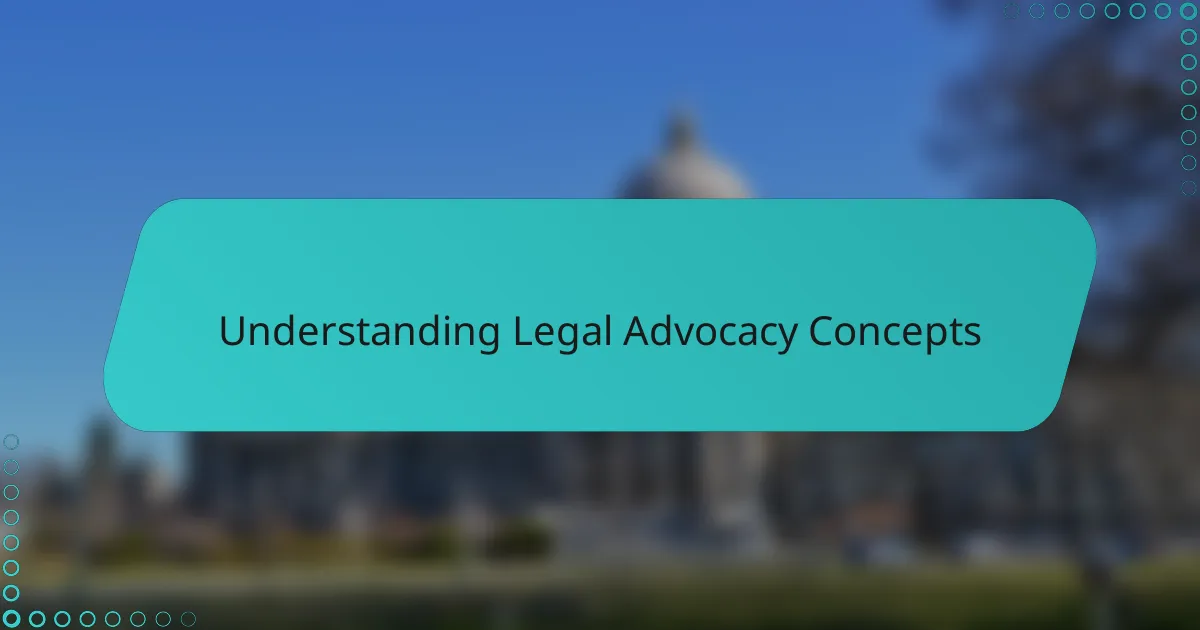
Understanding Legal Advocacy Concepts
Legal advocacy is more than just knowing the law; it’s about effectively representing someone’s interests and navigating complex systems. When I first encountered this, I realized that understanding the principles behind legal advocacy made me appreciate the skill and empathy involved. Have you ever thought about how a lawyer balances being a fierce advocate while still maintaining ethical boundaries?
Grasping these concepts was like unlocking a new perspective for me—it wasn’t just about pleading cases but about strategic communication and genuinely understanding clients’ needs. This insight changed how I viewed legal work, making me eager to learn from those who mastered this delicate balance through experience.
What struck me most was how advocacy intertwines with human stories. Behind every case, there’s a unique narrative that requires not just legal knowledge but emotional intelligence. This is something I knew I could only grasp by talking to seasoned lawyers who lived that reality every day.
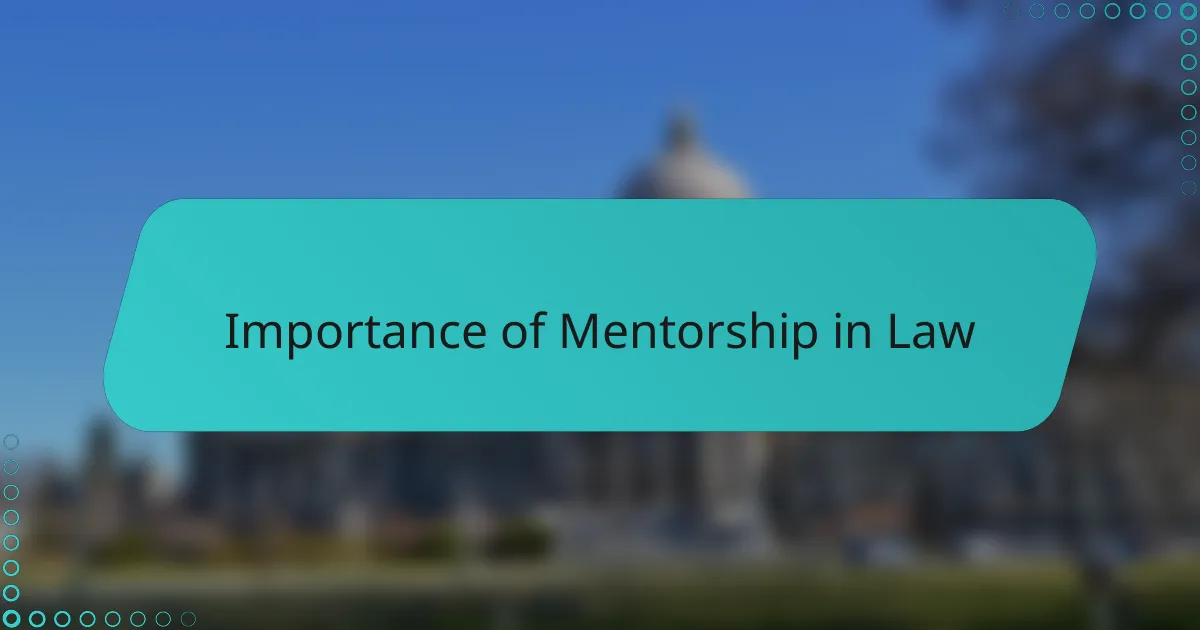
Importance of Mentorship in Law
Mentorship in law isn’t just a nice-to-have; it’s essential. Early in my journey, I found that seasoned lawyers didn’t just offer advice—they shared perspectives that textbooks couldn’t capture. Have you noticed how certain lessons only come through real-world stories and guidance?
I remember feeling overwhelmed by the complexity of cases until a mentor broke down the process with patience and real examples. That one-on-one support transformed my confidence and approach, making abstract concepts tangible. It’s clear to me that mentorship builds bridges between theory and practice in ways self-study alone can’t achieve.
What’s more, mentorship creates a space to ask the questions you fear might sound naive. I’ve found those conversations to be the richest learning moments, revealing nuances of legal advocacy that formal training often misses. Don’t you think the law becomes more human and accessible when you have someone experienced guiding you?
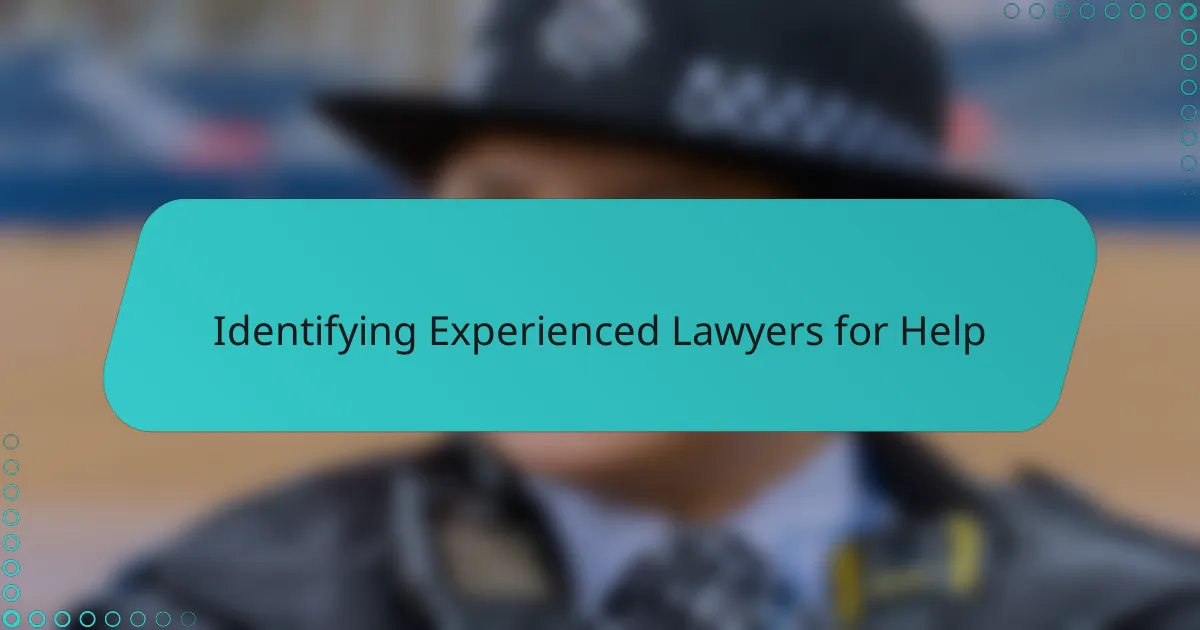
Identifying Experienced Lawyers for Help
Finding the right experienced lawyers to seek mentorship from was not as straightforward as I initially thought. I started by paying close attention to those who had a reputation for not only winning cases but also for their thoughtful approach to advocacy. Have you ever noticed how some lawyers seem to command respect not just because of their knowledge, but because of how they communicate and listen? That was my first clue.
I reached out within my existing network, asking peers who they trusted and admired. It was surprising how often the same names came up, not just for their legal victories but for their willingness to guide younger lawyers. Hearing personal stories about their mentorship made me realize that experience isn’t only about years served but about generosity in sharing wisdom.
What really helped me identify potential mentors was attending local bar association events and observing who others turned to for advice. In those conversations, I learned that spotting a great mentor means finding someone approachable, patient, and genuinely interested in teaching. Don’t you find that the best teachers are those who make you feel comfortable enough to ask the tough questions? That’s the type of mentor I knew I needed.
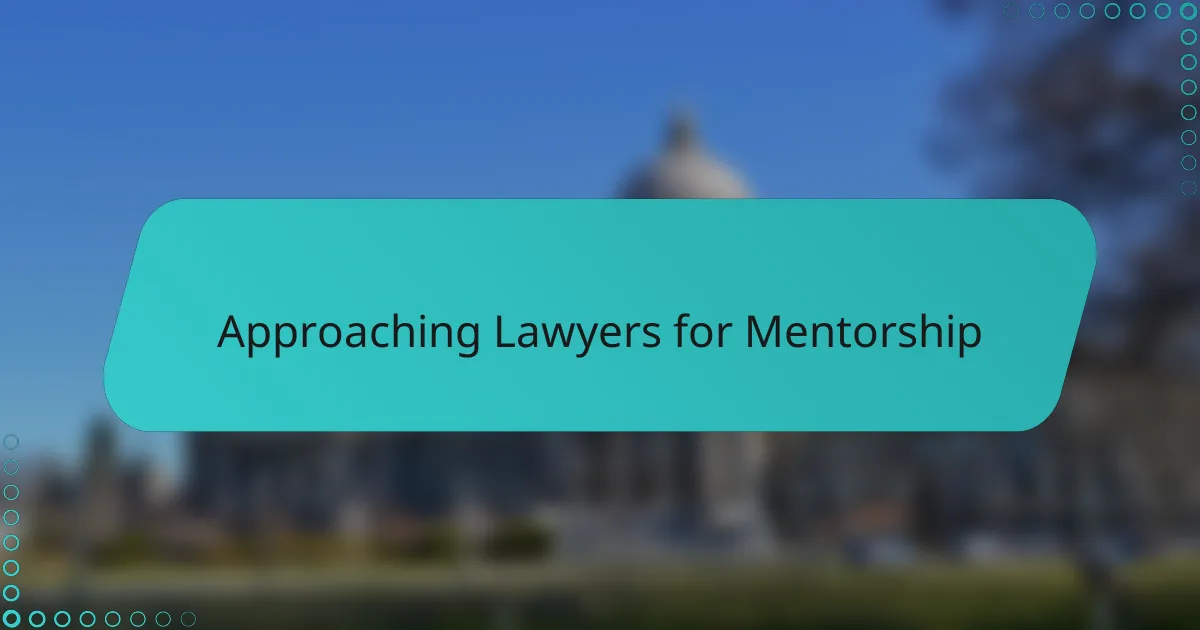
Approaching Lawyers for Mentorship
Approaching lawyers for mentorship felt daunting at first—I wasn’t sure if they would have time or even want to invest in someone like me. But I learned that being genuine and clear about my intentions made a huge difference. When I reached out, I simply expressed my admiration for their work and my eagerness to learn, which opened doors I hadn’t expected.
I also discovered that timing matters. Catching them after a speaking engagement or during quieter moments at a networking event created natural opportunities for conversation. Have you ever noticed how a brief chat over coffee can turn into a valuable exchange of ideas? Those informal moments often became the start of meaningful guidance.
What stood out to me was how most experienced lawyers appreciated a respectful but persistent approach. They told me that showing commitment and follow-up questions signaled seriousness. It made me realize that mentorship isn’t just about asking for help—it’s about building trust and demonstrating my own dedication to growth.
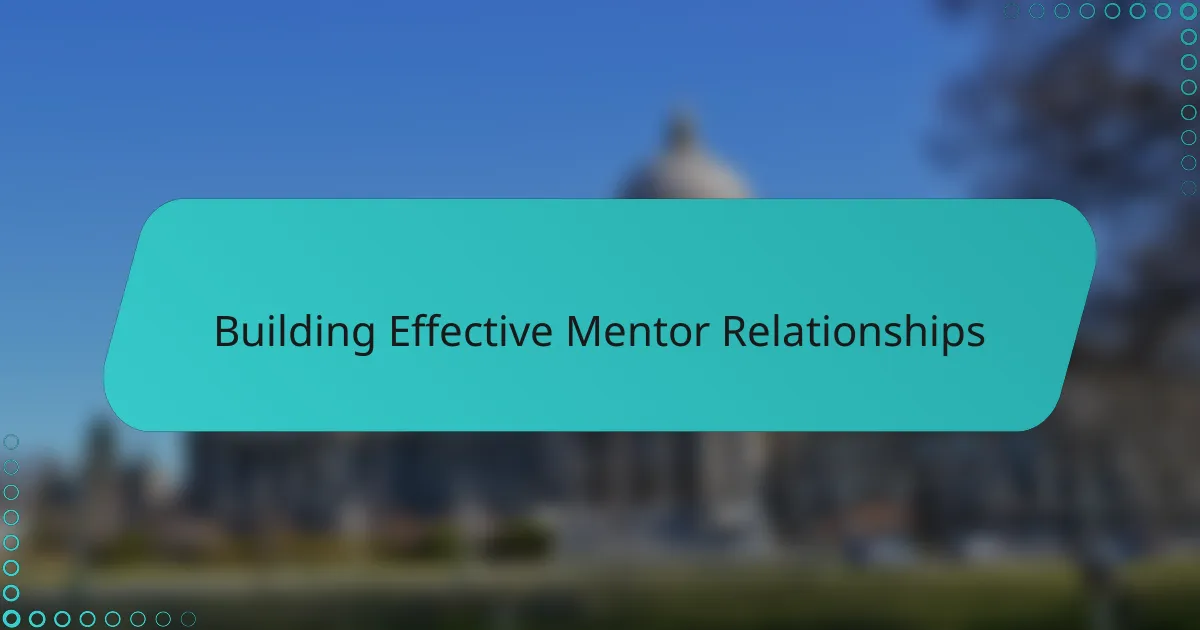
Building Effective Mentor Relationships
Building effective mentor relationships, I found, hinges on more than just regular meetings. It’s about cultivating genuine mutual respect and openness. Have you ever felt that the best conversations happen when both sides listen deeply—not just waiting for their turn to speak, but truly engaging with each other’s experiences?
One lesson I learned early on was the importance of being proactive while also giving space. For instance, when I shared my challenges candidly, my mentors responded with tailored advice that addressed the root issues—something I wouldn’t have gotten by staying silent or vague. It felt empowering to know that honest communication fuels growth.
Trust takes time to build, and I noticed that consistent follow-up made a big difference. Simple gestures like updating mentors on my progress or asking thoughtful questions showed them I valued their guidance. Don’t you think that kind of commitment turns a formal mentorship into a rewarding partnership?
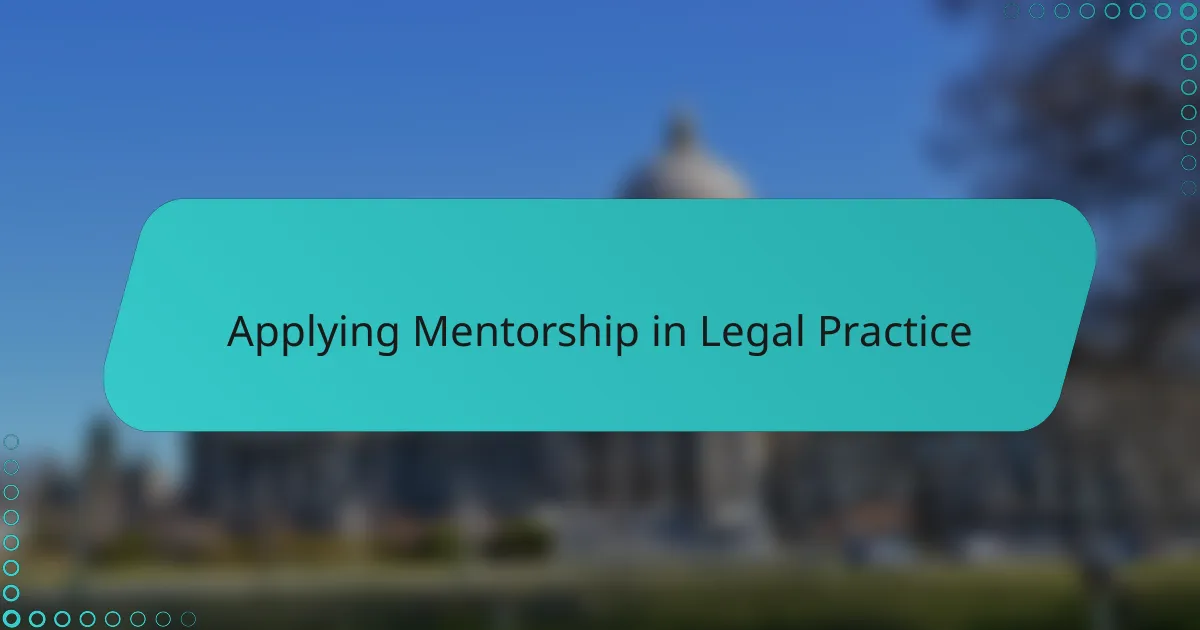
Applying Mentorship in Legal Practice
Applying mentorship in legal practice became my compass when facing complex cases. Whenever I hit a roadblock, reflecting on lessons from my mentors helped me navigate through with confidence. Have you ever experienced how a mentor’s perspective can suddenly clarify a strategy that seemed impossible?
I recall a moment when struggling to draft a persuasive argument, a mentor’s detailed feedback on my approach transformed my writing entirely. It wasn’t just about correcting mistakes but about adopting a mindset that values clarity and precision. That shift reshaped how I advocate, making my work more effective and client-centered.
What struck me most is that mentorship in practice isn’t a one-way street; it’s an ongoing dialogue that sharpens both skills and judgment. How often do we pause to consider how applying what we’ve learned from mentors actually influences our day-to-day decisions? For me, it’s those small, consistent applications that build true mastery.


